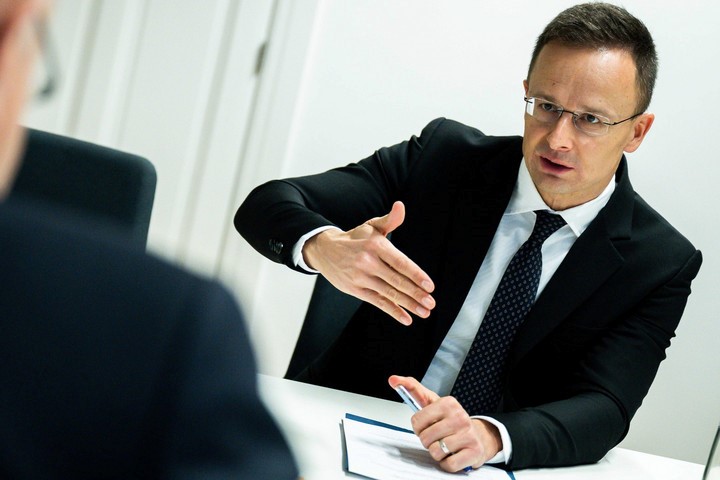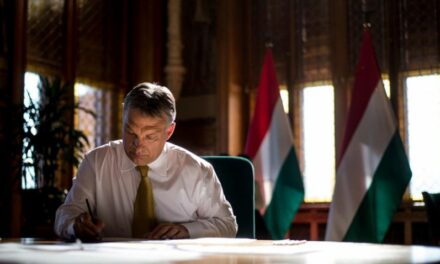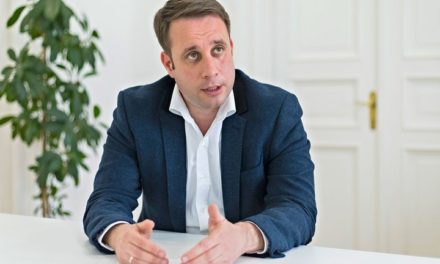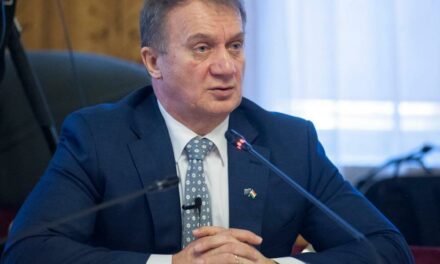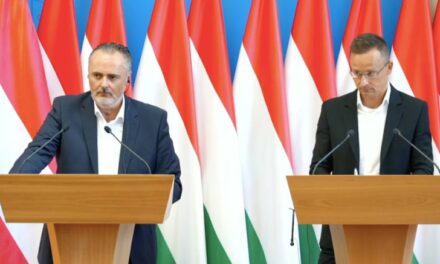Both Ukrainians and Croatians are raising transit prices in a crazy, coordinated way, and energy supply is a matter of physical reality, not a political-ideological matter.
"If the Russian sources were cut off, Hungary's energy supply would become physically impossible," said Péter Szijjártó at a panel discussion at the St. Petersburg Economic Forum, according to Portfolio.
The Minister of Foreign Affairs repeated his much-voiced proposition that care is a matter of physical reality, not a political-ideological matter.
Szijjártó emphasized that there are four extremely important prerequisites for guaranteeing the security of the European energy supply.
As many energy sources and transit routes need to be made available, this is what the Hungarian government means by "diversification", not just replacing one supplier, moreover, a reliable supplier with another. By this, he was referring to Gazprom, which he regularly calls a reliable supplier, while Russian deliveries to more than a dozen EU member states were stopped last year for various reasons and excuses.
He warned: "Whether or not we buy gas from Russia is not a matter of political taste."
He stated that preparations for the next heating season must be started with great strength and as early as possible, because it will be much more difficult than the previous one. In connection with the first point, he reminded that a significant amount of Russian natural gas still arrived in Europe until September last year, but this has practically dropped to zero except for Hungary, and one can only hope that the continent will have a mild winter again. At the level of numbers, this means that last year around 60 billion cubic meters of Russian pipeline gas arrived in the EU (plus LNG), while this year we are at 11 billion cubic meters so far, so if the transit through Ukraine and Turkey continues with the usual daily volume progress, the annual volume will be 22-25 billion cubic meters. Regarding the gas supply, he reminded her that
In Hungary, the amount of gas stored already covers more than 37 percent of the annual consumption, while in Europe this value is just over 21 percent on average.
He explained that certain countries should not be allowed to profit from the current crisis and challenging situation. As he said
Today, crude oil arrives in Hungary via two routes, and the two neighboring countries involved are raising transit prices in a "crazy, coordinated way", thereby exacerbating the crisis.
By doing so, he indicated that the Ukrainians are significantly increasing the transit fee for several times this year due to partly budgetary and partly geopolitical reasons, and the Croatians also implemented a rough tariff increase on the Adriatic pipeline due to budgetary and geopolitical reasons, as well as the energy disputes between the two countries (Mol- INA).
He touched on the ideological and political campaign against nuclear energy in Europe and made it known that even if it is a big and powerful country,
the Hungarian government is not willing to follow Germany in reducing nuclear energy.
He emphasized that nuclear energy, as a safe, clean, sustainable and cheap method of electricity production, is the guarantee of long-term energy security, and the only way to keep utilities at a manageable level and to achieve green goals. In connection with the latter, he emphasized that if Paks II is built, 17 million carbon dioxide emissions per year will be prevented, and he also highlighted that sufficient energy cannot be produced using solar and wind power plants alone, nuclear reactors are needed for this.
Featured image: Péter Szijjártó's Facebook page

